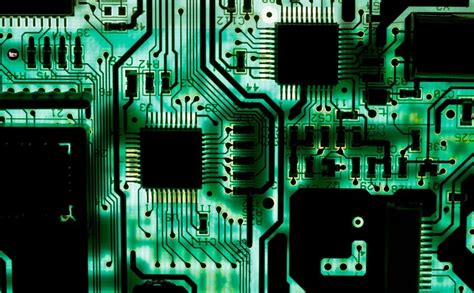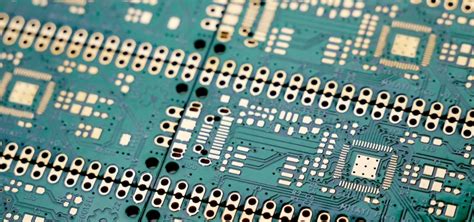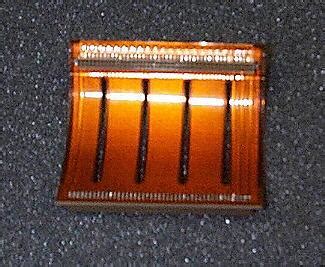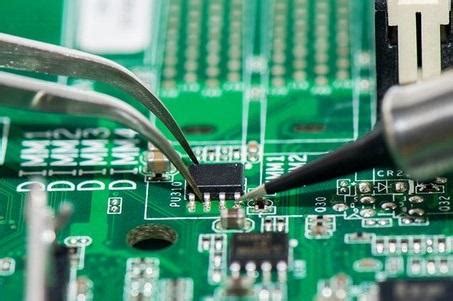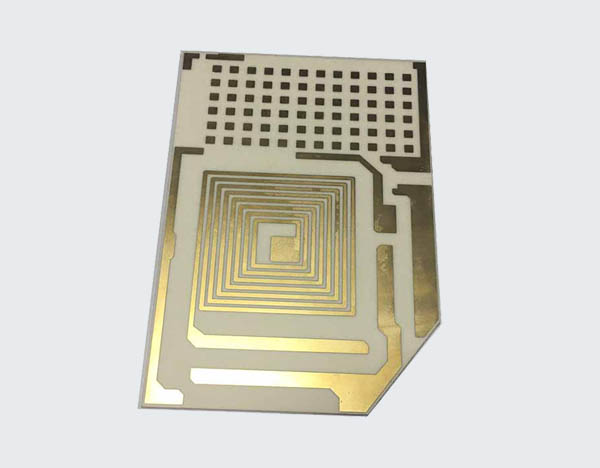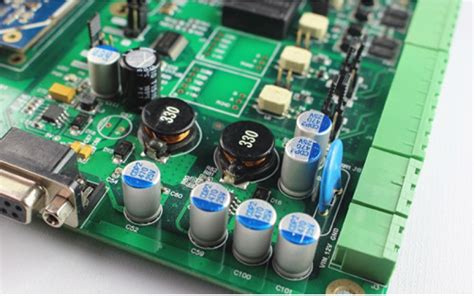Advanced PCB Manufacturing Solutions for Modern Electronics
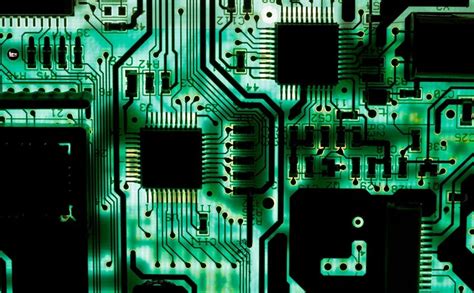
Key Takeaways
When selecting PCB manufacturing partners, understanding core value drivers ensures your project aligns with technical and budgetary requirements Here’s what to prioritize:
1 Rapid Prototyping: Leading PCB manufacturing companies offer 24-hour turnaround for prototypes, enabling iterative testing without delaying product launches
Tip: Request a breakdown of prototyping stages to identify potential bottlenecks early.
2 Cost Efficiency: While PCB manufacturing cost varies by complexity, bulk orders (1,000+ units) often reduce pricing to $2–$5 per 5-piece panel Use this benchmark to negotiate with suppliers
| Service Tier | Lead Time | Cost per 5pcs | Best For |
|---|---|---|---|
| Standard | 5–7 days | $350 | Low-volume testing |
| Expedited | 24–48 hrs | $520 | Urgent revisions |
| High-Mix | 10 days | Custom quote | Complex designs |
3 Certification Compliance: ISO-certified processes guarantee adherence to international quality standards, minimizing defects in high-frequency or high-temperature applications
4 Advanced Capabilities: Modern PCB manufacturing business models integrate laser drilling and HDI stacking, critical for miniaturized wearables or IoT devices
5 Streamlined Scaling: Partner with firms offering end-to-end solutions—from fabrication to precision assembly—to avoid logistical fragmentation
“A supplier’s ability to scale with your demand is as vital as their technical expertise Always verify their capacity for sudden order surges.”
— Industry Expert, Electronics Supply Chain Digest
By balancing PCB manufacturing cost with certifications and technical agility, you mitigate risks while accelerating time-to-market Evaluate vendors through dual lenses: operational transparency and post-sales support responsiveness
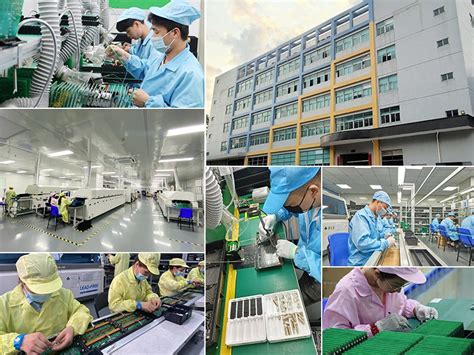
/7 Rapid PCB Prototyping Services
When developing modern electronics, time-to-market can make or break a product’s success This is where PCB manufacturing companies specializing in rapid prototyping become indispensable By leveraging cutting-edge fabrication techniques, these providers deliver functional prototypes within as little as 24 hours, allowing you to test designs, identify flaws, and iterate faster
The PCB manufacturing cost for prototyping has become increasingly competitive, with advanced automation and material optimization reducing expenses without compromising quality For startups and established enterprises alike, this affordability enables smaller batch orders, minimizing financial risk during the R&D phase Many PCB manufacturing partners now offer tiered pricing models, scaling costs based on layer count, material selection, and turnaround speed—giving you flexibility to balance budget and project urgency
What sets top-tier PCB manufacturing business providers apart is their integration of precision engineering with digital workflows Features like automated DFM (Design for Manufacturing) checks and real-time order tracking streamline communication, ensuring your specifications are met accurately For high-frequency or high-density designs, advanced capabilities such as laser-drilled microvias and impedance-controlled routing ensure prototypes mirror final production performance
By partnering with a prototyping-focused PCB manufacturing expert, you gain more than just speed—you secure a collaborative relationship that refines your design for manufacturability early on This proactive approach reduces delays during mass production and positions your product to meet evolving market demands with agility
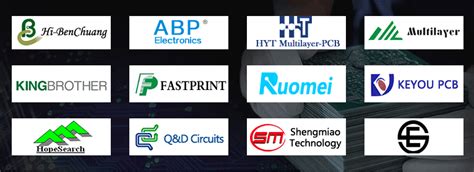
PCB Manufacturing From 2/5pcs
When sourcing PCB manufacturing services, balancing affordability with reliability is critical—especially for projects requiring small-batch production Leading PCB manufacturing companies now offer scalable pricing models, with entry-level orders starting as low as $2 for 5 pieces, making prototyping and initial testing accessible without compromising quality This pricing structure reflects advancements in automated fabrication processes, which minimize PCB manufacturing cost while maintaining precision for high-performance applications
Understanding cost drivers helps optimize budgets Factors like material selection (FR-4, high-frequency laminates), layer count, and surface finishes (ENIG, HASL) directly influence pricing However, economies of scale still apply: while per-unit costs decrease with larger orders, the $2/5pcs tier caters to startups and engineers validating designs before full-scale production For businesses managing a PCB manufacturing business, this flexibility reduces upfront risks and accelerates time-to-market
To further streamline expenses, consider design-for-manufacturing (DFM) principles Simplifying board layouts, standardizing hole sizes, and panelizing designs can lower material waste and labor hours Reputable manufacturers often provide free DFM analysis, identifying potential optimizations before production begins
Whether you’re developing IoT devices or industrial controls, partnering with a certified PCB manufacturing provider ensures adherence to ISO quality standards These certifications validate processes like solder mask application and electrical testing, which are non-negotiable for mission-critical electronics By aligning your project with a supplier that transparently outlines PCB manufacturing cost structures, you gain both financial predictability and technical confidence
ISO-Certified PCB Solutions
When selecting a partner for PCB manufacturing, compliance with international standards isn’t just a checkbox—it’s a cornerstone of reliability ISO-certified PCB manufacturing companies adhere to rigorous quality management systems, ensuring every layer of your design meets exacting specifications This certification validates that processes—from material sourcing to final testing—align with globally recognized benchmarks, reducing risks like signal interference or thermal mismanagement in high-performance electronics
For businesses balancing innovation with PCB manufacturing cost, ISO standards streamline efficiency Certified providers optimize material usage and minimize waste through automated workflows, directly impacting your bottom line For instance, standardized testing protocols reduce costly post-production revisions, while batch traceability ensures swift resolution of any anomalies This precision becomes critical when scaling prototypes to full production, where even minor defects can escalate expenses
The strategic advantage of partnering with an ISO-compliant PCB manufacturing business extends beyond quality assurance It builds trust with stakeholders—OEMs, investors, and end-users—who prioritize transparency Compliance also future-proofs your supply chain, as many industries mandate certifications for partnerships Whether you’re developing IoT devices or aerospace systems, aligning with certified manufacturers simplifies navigating evolving regulatory landscapes, ensuring your products meet both current and emerging market demands
By integrating ISO standards into PCB manufacturing, you’re not just purchasing a service—you’re investing in a framework designed to elevate product performance while mitigating operational risks This approach positions your projects to thrive in markets where reliability and compliance are non-negotiable
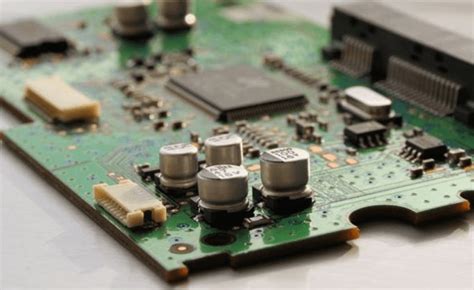
Advanced PCB Tech for Electronics
When designing modern electronics, leveraging advanced PCB manufacturing technologies ensures your products meet rigorous performance demands Today’s PCB manufacturing companies employ innovations like high-density interconnect (HDI) designs, embedded components, and ultra-thin substrates to address challenges in signal integrity, thermal management, and miniaturization For instance, HDI PCBs reduce layer counts while enhancing circuit density—ideal for wearables or IoT devices where space constraints dominate
Balancing PCB manufacturing cost with quality requires strategic material selection Advanced substrates like polyimide or ceramic-filled laminates offer superior heat resistance but may increase expenses However, partnering with experienced manufacturers allows you to optimize material usage without compromising reliability Techniques such as automated optical inspection (AOI) and impedance control further minimize errors, ensuring your PCB manufacturing business avoids costly rework
Emerging technologies like flexible PCBs or additive manufacturing also redefine possibilities Flexible circuits, for example, enable seamless integration into curved surfaces, while 3D-printed traces accelerate prototyping cycles These advancements empower OEMs to iterate faster and scale production efficiently
For businesses prioritizing precision, ISO-certified partners combine cutting-edge tech with rigorous quality protocols Their expertise in multilayer boards and mixed-material assemblies ensures your designs transition smoothly from prototype to mass production By aligning with forward-thinking PCB manufacturing providers, you gain access to scalable solutions that adapt to evolving industry standards—whether for consumer gadgets or mission-critical aerospace systems
Transitioning to advanced PCB tech isn’t just about staying competitive; it’s about future-proofing your electronics As demands for speed, durability, and energy efficiency grow, investing in innovative manufacturing processes becomes a cornerstone of sustainable success
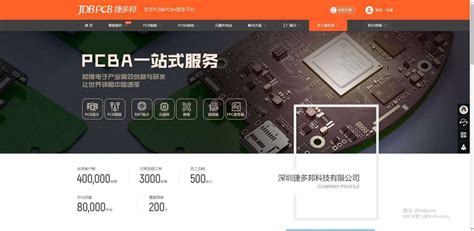
Streamline PCB Production Services
When optimizing your electronics development cycle, partnering with PCB manufacturing companies that prioritize streamlined workflows can significantly reduce time-to-market Modern automated production systems enable rapid scaling from prototyping to full-scale runs, eliminating bottlenecks caused by manual processes By integrating advanced panelization techniques and just-in-time material management, these providers minimize PCB manufacturing cost while maintaining precision across multilayer boards and high-density interconnect (HDI) designs
A key advantage of contemporary PCB manufacturing solutions lies in their data-driven process optimization Real-time monitoring systems track every stage—from copper etching to final electrical testing—ensuring consistent quality without compromising speed For businesses managing tight budgets, flexible order configurations (such as batch sizing options) allow you to align production volumes with actual demand, avoiding overstock penalties
The PCB manufacturing business has evolved to address complex challenges like impedance control and thermal management through AI-powered design validation tools These platforms automatically flag potential fabrication issues, reducing revision cycles by up to 40% Additionally, standardized documentation protocols simplify compliance audits for ISO-certified projects, particularly in aerospace or medical device applications where traceability is non-negotiable
To maximize efficiency, leading providers now offer unified supply chain integration, synchronizing component sourcing with board fabrication timelines This approach not only accelerates assembly readiness but also mitigates risks associated with geopolitical material shortages By leveraging these advancements, you can transform PCB manufacturing from a cost center into a strategic asset that drives innovation while safeguarding margins
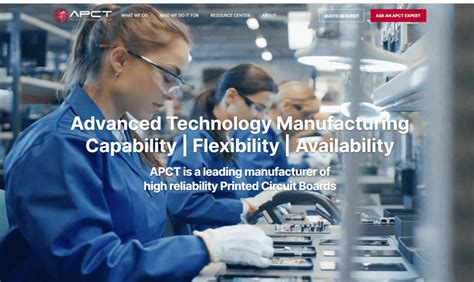
Precision PCB Assembly for OEMs
When scaling your electronics production, partnering with PCB manufacturing companies that specialize in precision assembly ensures your designs transition seamlessly from prototype to mass production Advanced placement technologies and automated optical inspection (AOI) systems enable these providers to handle complex layouts, including micro-BGA components and high-density interconnects (HDIs), with sub-10-micron accuracy For OEMs, this translates to consistent performance across batches—critical for applications in aerospace, medical devices, or IoT systems where reliability is non-negotiable
A key advantage lies in optimizing PCB manufacturing cost without compromising quality Reputable suppliers achieve this through panelization strategies that maximize material usage and lean manufacturing workflows that reduce idle time By integrating design-for-manufacturability (DFM) feedback early in the process, they help you avoid costly redesigns while adhering to IPC-A-610 standards This proactive approach is particularly valuable for low-to-mid-volume runs, where balancing economies of scale with flexibility is essential
The PCB manufacturing business model for OEM-focused assembly prioritizes scalability Whether you require 100 or 10,000 units, modular production lines allow suppliers to adjust capacity dynamically Real-time traceability systems further enhance transparency, giving you granular control over component sourcing and assembly milestones For industries like automotive or industrial automation, where supply chain resilience is paramount, this level of oversight minimizes risks associated with component shortages or geopolitical disruptions
To stay competitive, leading PCB manufacturing partners now offer unified digital platforms that synchronize your ERP systems with their production schedules This integration streamlines order tracking, reduces lead times by up to 30%, and provides actionable insights into yield rates or potential bottlenecks By aligning their processes with your operational cadence, these providers become extensions of your engineering team—delivering not just boards, but a strategic advantage in accelerating time-to-market
High-Quality PCB Manufacturing
When sourcing PCB manufacturing solutions, the emphasis on quality directly impacts the reliability and longevity of your electronic devices Leading PCB manufacturing companies prioritize precision at every stage, from material selection to final testing Advanced processes like laser direct imaging (LDI) and automated optical inspection (AOI) ensure trace widths as narrow as 2 mils and tolerances within ±01mm, critical for high-frequency or miniaturized designs This level of exactness minimizes signal loss and prevents failures in demanding environments, whether for consumer wearables or industrial control systems
Balancing PCB manufacturing cost with quality requires strategic partnerships Reputable providers optimize material utilization—such as using high-Tg FR-4 laminates for thermal stability—while offering tiered pricing models for prototypes and bulk orders For instance, surface finishes like ENIG (Electroless Nickel Immersion Gold) might increase upfront costs but reduce long-term maintenance expenses by enhancing solderability and corrosion resistance By aligning your design specifications with a manufacturer’s capabilities, you avoid over-engineering and unnecessary expenditures
For businesses scaling operations, integrating PCB manufacturing business expertise into your supply chain ensures consistency ISO-certified facilities adhere to IPC-A-600 and Class 3 standards, validating rigorous quality control protocols Real-time production tracking systems and failure mode analysis (FMEA) further streamline workflows, reducing lead times by up to 30% These efficiencies not only accelerate time-to-market but also fortify your brand’s reputation for delivering durable, high-performance electronics
Ultimately, selecting a partner that marries technical excellence with cost transparency allows you to meet evolving industry demands without compromising on reliability
Fast-Turnaround PCB Solutions
When developing modern electronics, time-to-market can make or break your product’s success This is where partnering with PCB manufacturing companies that prioritize rapid delivery becomes critical Advanced PCB manufacturing workflows now integrate automated design checks and just-in-time material sourcing to slash lead times without compromising quality For instance, 24-hour prototyping services allow you to test iterations within a single business day, ensuring design flaws are addressed before full-scale production begins
Balancing PCB manufacturing cost and speed requires strategic planning Reputable providers optimize panelization techniques to minimize material waste while leveraging high-speed drilling and direct imaging systems These innovations enable per-unit pricing models that scale efficiently, even for complex multilayer boards By aligning your PCB manufacturing business needs with suppliers offering flexible order volumes, you avoid overstocking or delays caused by bulk-order dependencies
Transitioning from prototype to mass production? Seamless handoffs are achieved through unified software platforms that sync design files, testing protocols, and logistics tracking This end-to-end visibility ensures your accelerated timelines don’t sacrifice compliance with ISO or IPC standards Whether you’re iterating a wearable device or scaling industrial IoT hardware, ## Fast-Turnaround PCB Solutions act as a force multiplier—keeping your projects agile in competitive markets
Conclusion
In today’s fast-paced electronics landscape, partnering with the right PCB manufacturing provider is critical to staying competitive Whether you’re scaling production or refining prototypes, cost-efficiency and technical precision remain non-negotiable Modern PCB manufacturing companies leverage cutting-edge technologies—from automated quality control to multi-layer fabrication—to deliver solutions that align with evolving industry demands
When evaluating PCB manufacturing cost, it’s essential to look beyond upfront pricing Factors like material quality, turnaround time, and compliance with international standards (such as ISO certification) directly impact long-term value For instance, opting for a supplier that integrates advanced design-for-manufacturability (DFM) tools can reduce revisions, minimizing delays and unexpected expenses
For businesses operating in the PCB manufacturing business, scalability often dictates success Modular production systems and flexible order quantities allow you to adapt to market fluctuations without compromising quality Additionally, prioritizing partners that offer end-to-end services—from prototyping to assembly—streamlines workflows, ensuring seamless transitions between development stages
Ultimately, the goal is to balance innovation with reliability By aligning with PCB manufacturing experts who prioritize both technological agility and cost transparency, you position your projects for sustained growth As electronics grow more complex, the ability to source high-performance boards efficiently will remain a cornerstone of success in this dynamic industry
Frequently Asked Questions
How do I choose the right PCB manufacturing company for my project?
When selecting a PCB manufacturing partner, prioritize firms with certifications like ISO 9001, which ensure adherence to quality management systems Look for expertise in your industry, whether it’s consumer electronics, automotive, or medical devices Transparency in PCB manufacturing cost structures and the ability to scale production are also critical factors
What factors influence PCB manufacturing cost?
Costs depend on design complexity, material selection (e.g., FR-4 or high-frequency laminates), layer count, and turnaround time Bulk orders typically reduce per-unit pricing, while advanced features like HDI or impedance control may increase expenses Reputable PCB manufacturing companies provide detailed quotes to help you balance budget and performance
Can PCB manufacturing businesses handle both prototyping and mass production?
Yes, many providers offer end-to-end solutions Rapid prototyping (e.g., 24-hour services) allows you to test designs before committing to large-scale runs For streamlined workflows, opt for companies that integrate PCB manufacturing and assembly under one roof, minimizing delays and compatibility issues
How does ISO certification impact PCB manufacturing quality?
ISO-certified facilities follow strict protocols for material sourcing, process control, and testing This reduces defects and ensures consistency, especially for high-reliability applications like aerospace or industrial equipment Always verify certifications to avoid compromises in your PCB manufacturing business partnerships
What technologies do advanced PCB manufacturing companies use?
Leading firms employ laser drilling, automated optical inspection (AOI), and surface finishes like ENIG or HASL For high-density designs, technologies such as microvias and sequential lamination are essential These innovations help meet the demands of modern electronics while controlling PCB manufacturing cost
How long does prototyping typically take?
Standard prototyping ranges from 24 hours to 5 days, depending on design complexity Expedited services are ideal for urgent iterations, while some PCB manufacturing providers offer design-for-manufacturability (DFM) feedback to accelerate time-to-market
Ready to Optimize Your PCB Production?
For tailored PCB manufacturing solutions that align with your technical and budgetary needs, please click here to explore our services at https://wwwandwinpcb.com/pcb-manufacturing/ From prototyping to full-scale production, we ensure precision, speed, and competitive pricing

